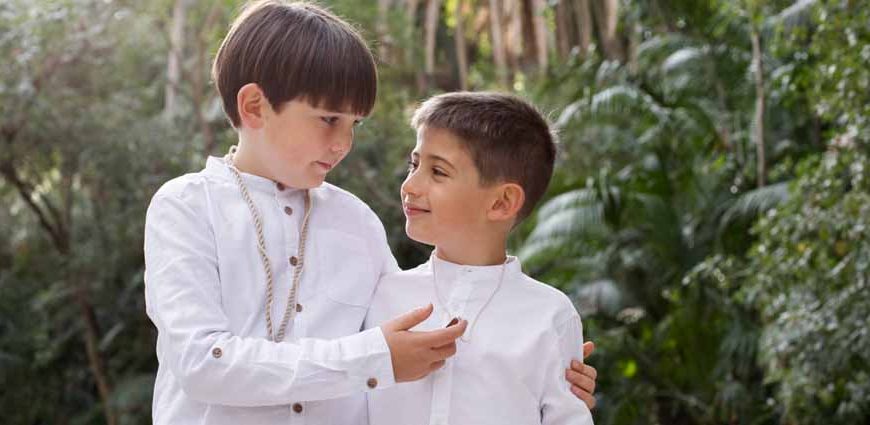All of us enjoy receiving gifts, especially when it is not expected. We all can relate to the element of surprise and the thrill of receiving something new. But how long does this feeling last, a day or two before the gift gets consumed, put into the drawer or cupboard along with some other pile of gifts previously received, or kept aside to be used later on? The Joy is short-lived.
“Happiness doesn’t result from what we get, but from what we give”.
Ben Carson
Ben Carson (an American neurosurgeon and politician) and many others have pointed out that honest Joy, the Joy that lasts longer, comes not from receiving but from the pleasure of giving. Joy multiplies when it is shared. With the cost of living ever increasing and everything becoming so competitive today, the sad reality is that even our children have learned to do things only if they receive something in return. Without lives becoming so materialistic, somewhere down the line, we are losing out humanity, the essence of who we are.
Our ability to feel and emphasise makes us different from machines or robots, and we need to preserve this quality and teach it to our children before it gets too late. We need to teach them that when we give wholeheartedly without expecting anything in return, we will experience faithful Joy and happiness that will not only last a lot longer but will fill us with true happiness; hence it is rightly called ‘the Joy of Giving.’
Why is Practising the Joy of Giving Necessary? 2 Key Reasons
Research has repeatedly proven that the brain releases happy hormones or endorphins when we practise the joy of giving activities. And these neurochemicals are good for our mental health, which in turn is good for our well-being (Read more on activities to boost mental health).
Reason 1 – Good Mental Health Rewards Us With (H3)
o Better and deeper sleep
o It reduces our blood pressure
o Decreases our chances of going into depression
o Reduces digestive issues
o Minimises any chronic health issues or reduces our chances of getting any chronic health issues.
Reason 2 – The Pleasure of Giving Teaches us to be Grateful (H3)
The joy of giving week activities instils gratitude in kids. Once we experience the Joy of giving without expecting anything in return, it changes who we are. There is no turning back. The Joy of helping others gives our lives a sense of purpose and meaning while evoking a feeling of gratitude toward the ones we allow. It is a strange, contradictory, and profoundly complex feeling to be happy that you can help someone and so immensely grateful to that person for allowing you to help them. It doesn’t have to be big and expensive gestures. Even small acts of kindness can give you this feeling.
“Teaching children gratitude can help them feel happier, support better social relationships, and improve overall health and well-being. Strategies that can help foster gratitude in kids include asking gratitude-focused questions, performing acts of kindness, and modelling gratitude in your own life.”
– Amy Morin, Writer at verywellMind
Starting small is the best way to begin and teach your child the benefits of charity and kindness. There are numerous ways to teach our children to be generous and experience the non-material joys of life. The Joy-of-giving-week activities is one of the ways you can teach your child to be grateful. Nevertheless, start by encouraging your child to share the toy they no longer need with a child less fortunate than them, maybe even cooking a simple meal with your child’s help and then sharing it with someone less fortunate. Sharing doesn’t come quickly for children when suddenly their long-forgotten toy becomes their new favourite toy just when you’re about to give it away. Keep at it. Children who learn to share and give from a young age are happier, more confident, and more grateful as adults who even appreciate the little things in life.
9 Essential Ways to Instil Joy of Giving to Your Little One (H3)
The Joy of helping people out takes time for children, so be patient and start small, and as you gradually build up, the children will get the hang of it. Try some of these ways to begging your child’s journey-
- Talk to your little one about sharing, and you can begin by sharing a piece of fruit from your plate and asking them to share apart from their plate. Sharing food is one of the wonderful joys of giving activities which kids can practise.
- Next, move on to asking them to share something from their plate only (you don’t have anything with you), saying that you “really need it” when they do, shower them with a lot of praise, kisses, and hugs, say “How nice of you to share, thank you.” Positive affirmation is a key step for parents to take as part of the joy of giving activities for kids. Slowly move on to a high five and finally into just a “thank you for sharing.” Try this progression over a few months. Do stress how grateful you are that they are sharing with you. You can even share their pillow, books, and even their toys.
- The next progression would be encouraging them to share with their siblings and other family members.
- Keep talking to your child about sharing and how they make others happy when communicating. This is one of the important joys of giving week ideas to children.
- Children copy what we do, so try to model good sharing behaviours and bring it to their attention. You can even talk to them about what they saw, the feeling felt by each one, and so on. Therefore, be grateful to yourself while encouraging the joy of giving week ideas for your children.
- As they grow up, you can bring their attention to children begging or people living on the streets and slums. For a slightly older child, you can even take them to an orphanage. Remember to recap what they have seen and emphasise all the things they have that the children on the streets or orphanages didn’t have.
- Soon after the previous activity, it would be a good idea to start collecting things from around the house or their rooms and put them into boxes or bags to give away, reminding them that we are giving them to those less fortunate than we and need these items. You may take it a step further and take your child with you when you donate these items, bringing to their notice the Joy on those children’s faces when they receive them.
- Repeat this activity once or twice a year, and you can go through your child’s things and, with their help, identify the books and toys they no longer need and the clothes that no longer fit them. Together you can segregate, pack and label the boxes to be given away. This is a beautiful bonding exercise too.
- Finally, you encourage your child to continue doing good deeds. You can either maintain a good deeds diary or even put up a good deeds chart and consistently reward your little one with praise, hugs, and kisses to encourage them.
7 Meaningful Reasons to Understand Participating in The Joy of Giving
Other than the prominent Joy we get from helping others, being a part of the Joy of Giving movement has several benefits.
- Feeling good that you’ve helped someone and made a difference in their lives.
- Get a sense of purpose and fulfilment.
- A sense of pride that you are giving back to society and making a difference
- There are tremendous health benefits, as mentioned earlier.
- You get an opportunity to declutter your house.
- The feeling of guilt when you throw away expensive things is not there when you give out the same things to someone who needs it.
- There is a sense of appreciation and gratitude for our living conditions and that we are indeed in a better situation than many people.
Conclusion
‘The more you give, the more you receive.’ You must have heard this at least once in your lifetime. Imagine how beautiful your kid might feel when they share their food and clothing with the less privileged. Or just imagine what your kids might feel when they realise we all are connected, and sharing is caring. In this article, we have covered all aspects of the joy of giving to your kids.
Many Centers, like EuroKids, have adopted this movement and have made the ‘Joy of giving” an annual event in their centres, with parents and children all getting actively involved in the process, thus bringing home the fact that there is never an early moment to teach your kids about the joys of helping others and improving the circumstances of those who are less fortunate than us. If you’d like to join one of our centers and be a part of this fantastic feel-good movement.
Which of the ways are you going to adopt to teach gratitude to your kids?
For informative and accurate articles on all things related to your new born-toddler’s development, growth, health and nutrition, follow EuroKids Blogs and do check out our nationally recognized preschools – EuroKids for the first step in your kid’s educational journey!
















